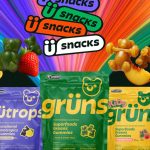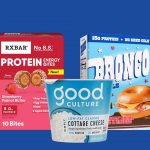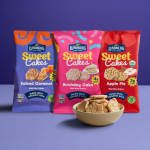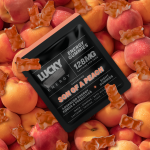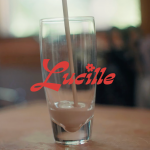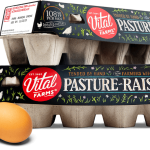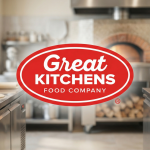Spare Food Co. Enters Foodservice With Upcycled Starter Ingredient
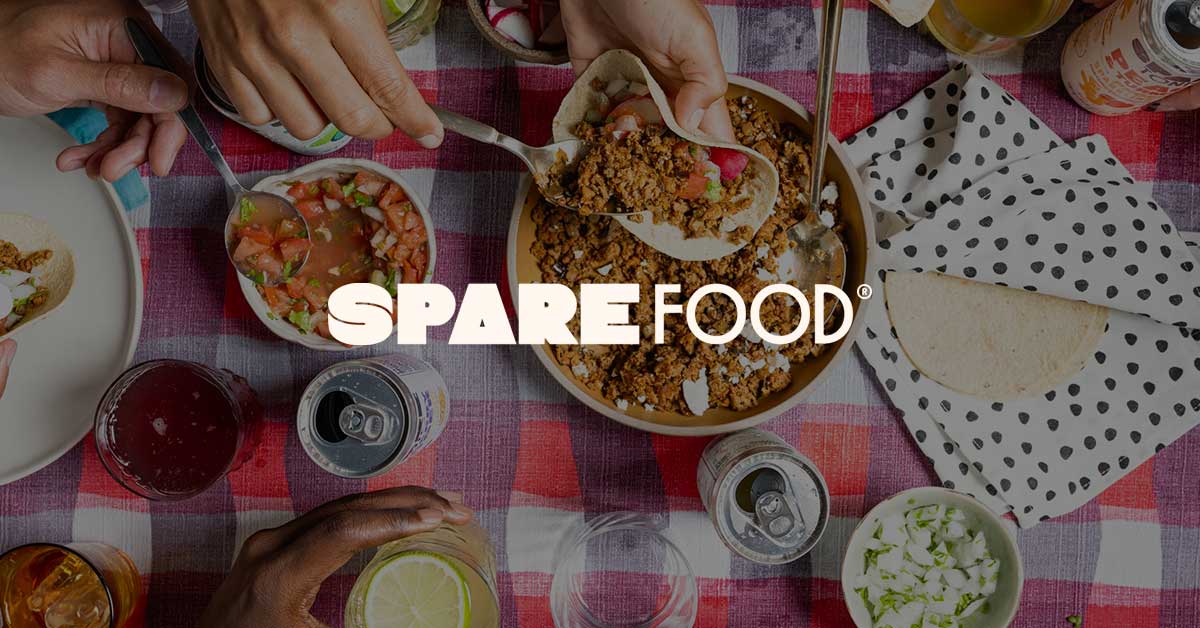
Having tested the waters for creating a brand around upcycled ingredient sourcing, The Spare Food Co. is targeting a new customer and revenue channel with the launch of its first-ever foodservice ingredient.
The new product, Spare Starter, is a pre-made blend of six upcycled ingredients for use in sauces or soups as well as flavoring for tacos, dumplings and pizza, or paired with fillers as a meat replacement for burgers and meatballs, according to the brand. While adhering to Spare’s commitment to using fresh vegetables that would otherwise be discarded as waste, targeting the foodservice channel allows the company to bypass challenges in CPG and start impacting the food ecosystem through commercial kitchens.
“Spare Starter’s genesis is rooted in my firsthand experience with what is wasted on farms, along with the inefficiencies and waste issues that arise in kitchens,” said Adam Kaye in a statement. “Spare Starter optimizes kitchen operations by reducing labor and time, and promotes a plant-forward diet, all while measurably reducing food waste.”
The product is a proprietary spice blend mixed with the often highly nutritious leftover stocks, leaves and discarded parts of vegetables that are not brought to grocery stores or wholesalers. Every 2 gallon tub (18 lbs.) of Spare Starter saves 740 gallons of water while preventing about 15 kg of CO2e from entering the atmosphere, according to a lifecycle analysis conducted by Planet FWD. The product is shelf-stable for one year until opened and is usable for 1 month under refrigeration.
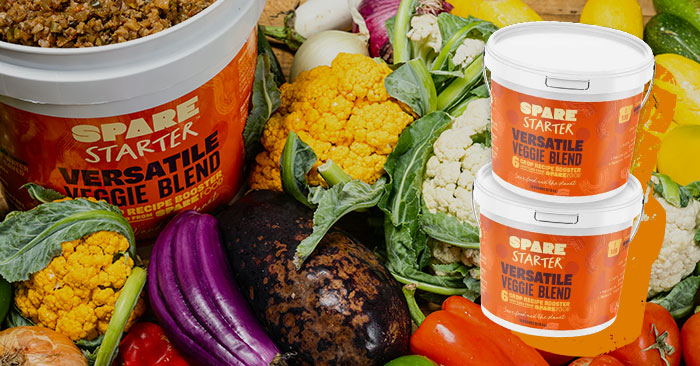
Spare Starter fits the Westchester, New York-based company’s ethos of addressing a multitude of challenges in the food system from food waste to labor shortages to rising food costs and promoting plant-based diets.
In late 2021, The Spare Food Co. launched its first product, Spare Tonic, a sparkling canned drink using upcycled whey from yogurt production. The 12-ounce probiotic beverage has six grams of whey-based protein and is currently available in four flavors — Lemon & Ginger, Passion Fruit & Yuzu, Cucumber & Lime and Blueberry & Ginger.
Along with Spare Starter, the food and beverage company plans to launch a “plant-forward” burger with 70% “responsibly-raised” beef and 30% upcycled vegetables.
Spare Starter was launched in partnership with Harvest Table Culinary Group, a collegiate foodservice operator, that is using the product in eight college campuses on the East Coast and in North Carolina including Wake Forest University, Brandeis University and the University of Rochester among others.
Along with the Harvest Table partnership, The Spare Food Co. has also launched in the corporate dining halls of Tiffany & Co. and LinkedIn.
“With our partnership growing, we hope to show the rest of the food industry how Spare Starter offers a tangible solution towards a sustainable and equitable food system and a proactive way to help achieve the sustainability goals of food service operators, their corporate clients, and their diners,” Jeremy said. “The labor, time and food waste savings in the kitchen alone cover the cost of the new product.”
Upcycling has become an increasingly popular food trend that has only gained momentum as brands seek to get certification from the Upcycled Food Association. Yet, the cost of creating upcycled products can at times weigh down on the value brands gain marketing as environmentally sustainable alternatives to conventionally made products.
Pivoting into being an ingredient supplier has proven to be one way to ride the upcycled wave while minimizing the cost of putting a product on-shelf. Upcycled Foods tested the market with a number of finished goods from puffed snacks, bars, pastas and baking mixes before deciding to focus all its resources on its ingredient platform centered around its flagship ReGrained SuperGrain+ made from spent brewers yeast.

